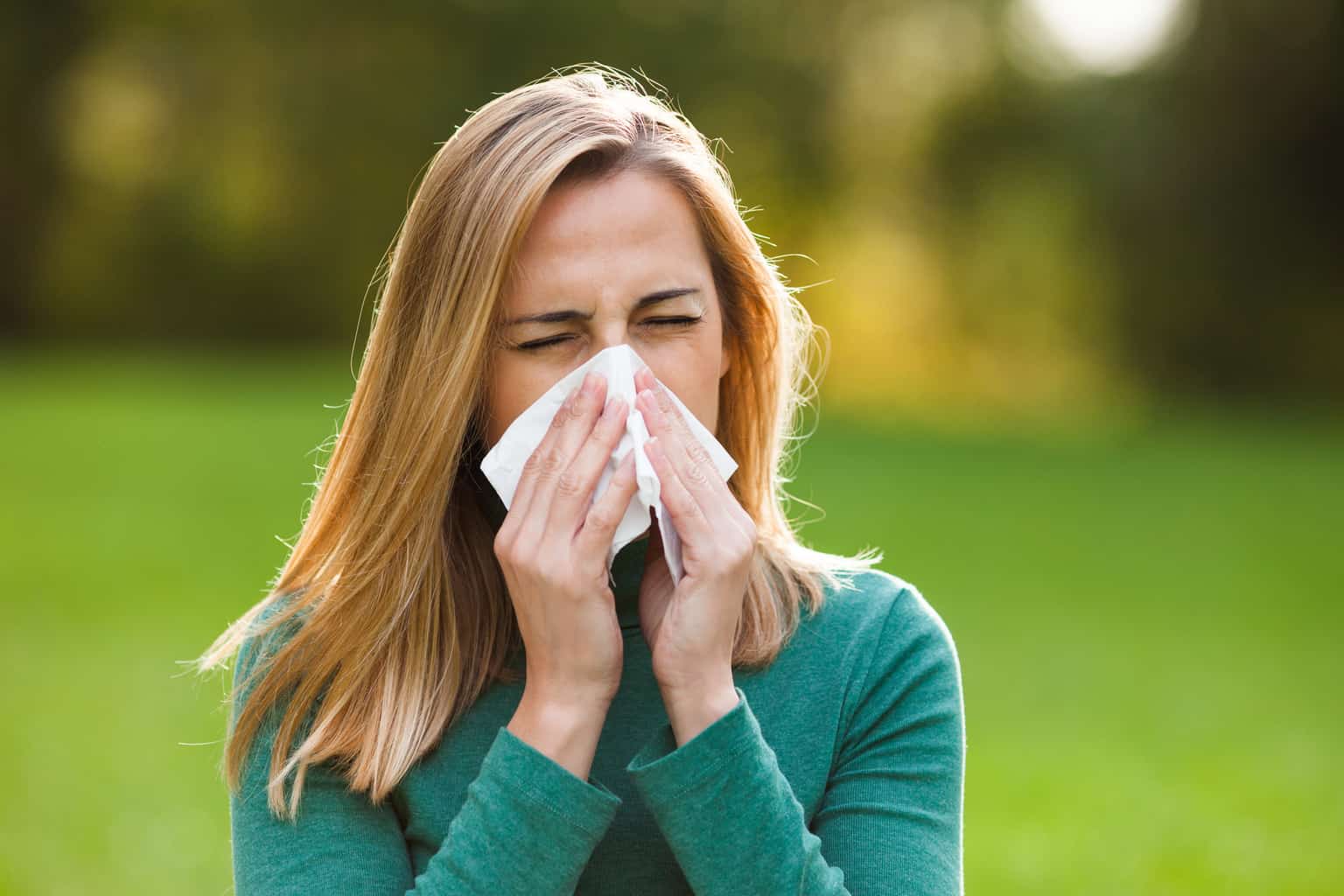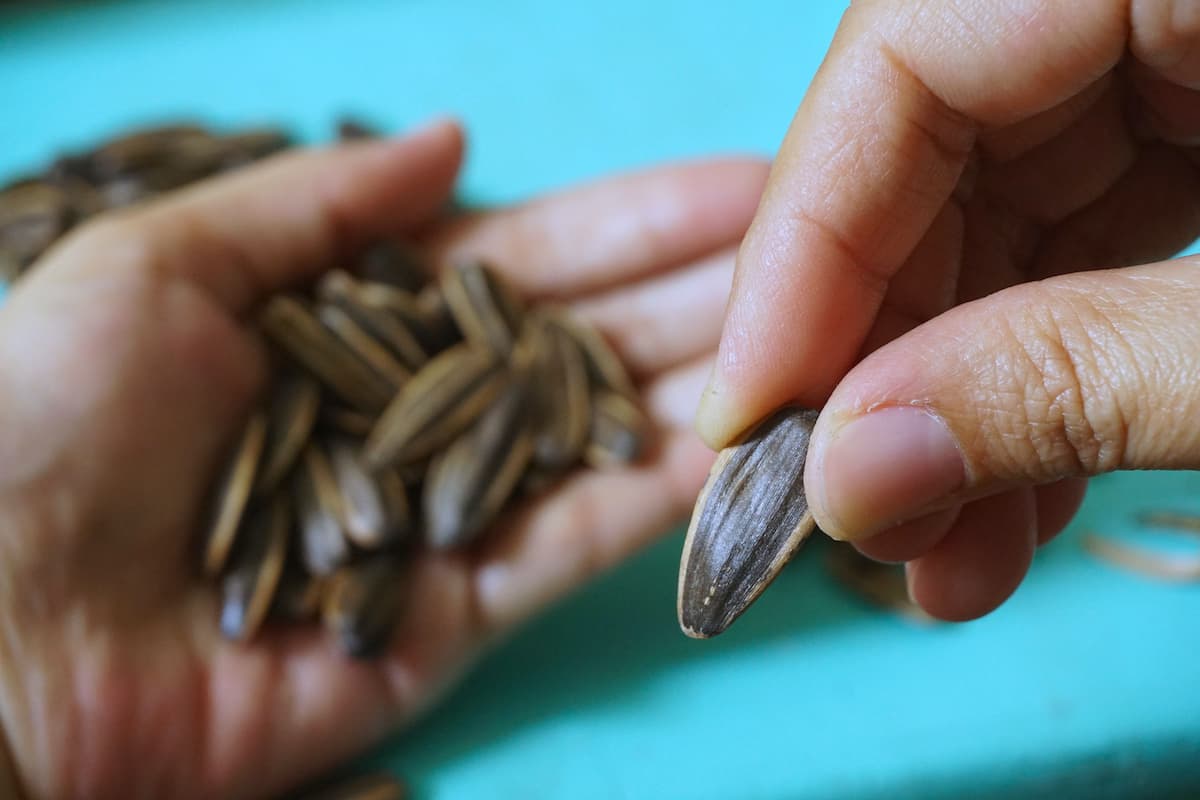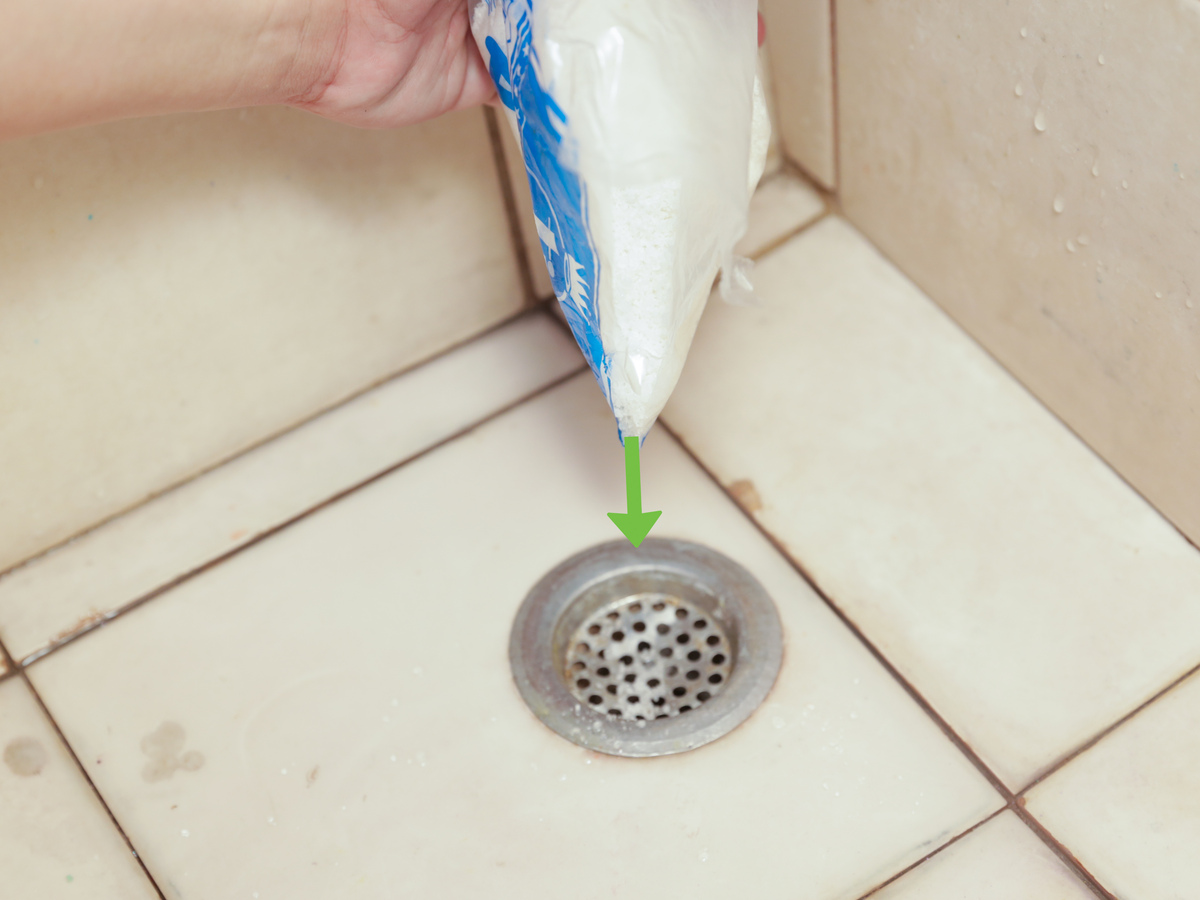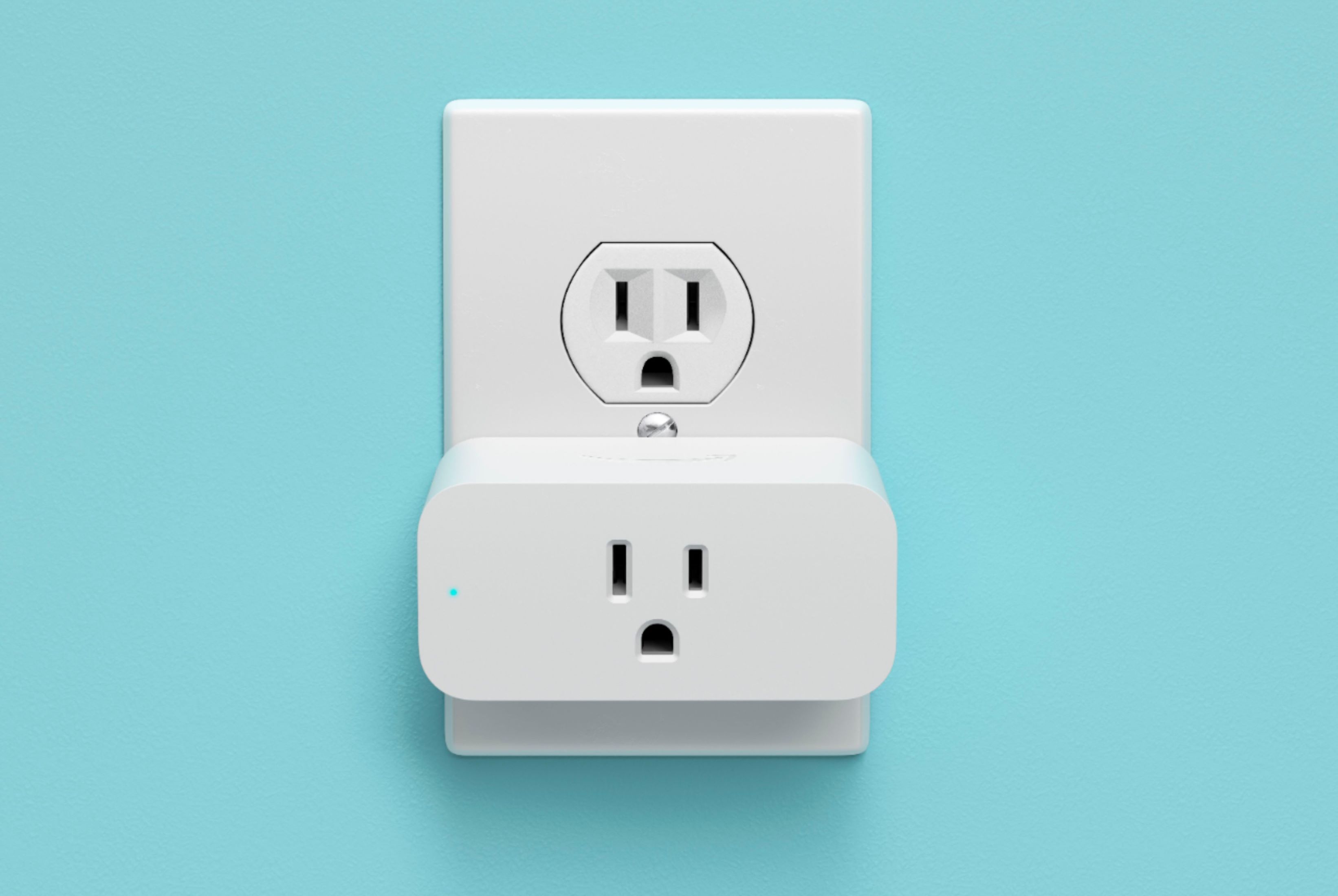Home>Gardening & Outdoor>Landscaping Ideas>How To Deal With Grass Allergies


Landscaping Ideas
How To Deal With Grass Allergies
Modified: February 18, 2024
Learn how to manage grass allergies with effective landscaping ideas. Discover tips to create an allergy-friendly outdoor space.
(Many of the links in this article redirect to a specific reviewed product. Your purchase of these products through affiliate links helps to generate commission for Storables.com, at no extra cost. Learn more)
Understanding Grass Allergies
Grass allergies, also known as hay fever or allergic rhinitis, are a common condition that affects countless individuals worldwide. When people with grass allergies come into contact with pollen from grass, their immune systems overreact, triggering a range of bothersome symptoms. Grass pollen is typically released during the spring and summer months, making this time of year particularly challenging for allergy sufferers.
Grass allergies are caused by an immune system response to specific proteins found in grass pollen. When these proteins are inhaled or come into contact with the eyes or skin, the body perceives them as harmful invaders and releases histamines and other chemicals to combat them. This immune response leads to the classic symptoms of grass allergies, including sneezing, runny or stuffy nose, itchy or watery eyes, and throat irritation.
It is crucial to note that grass allergies can significantly impact an individual’s quality of life, causing discomfort and disrupting daily activities. Understanding the triggers and symptoms of grass allergies is the first step toward effectively managing this condition and minimizing its impact on overall well-being.
Key Takeaways:
- Grass allergies cause discomfort during spring and summer. Recognize symptoms, use preventive measures, and seek professional help for effective management.
- Monitor pollen counts, create allergy-safe zones, and consider allergy-friendly landscaping to minimize grass allergy symptoms. Consult healthcare professionals for personalized treatment plans.
Read more: How Long Do Grass Allergies Last
Identifying Symptoms
Recognizing the symptoms of grass allergies is paramount for timely intervention and effective management. Individuals with grass allergies may experience a range of physical and respiratory symptoms when exposed to grass pollen. These symptoms can manifest differently from person to person, varying in severity and duration.
Common symptoms of grass allergies include:
- Sneezing
- Runny or stuffy nose
- Itchy or watery eyes
- Throat irritation
- Coughing
- Wheezing or shortness of breath
- Headache
- Fatigue
It’s important to note that these symptoms may overlap with those of the common cold or other respiratory conditions. However, the key distinguishing factor is the seasonal nature of grass allergies, with symptoms typically worsening during the spring and summer months when grass pollen is prevalent.
Furthermore, individuals with a history of allergies or a family history of allergic conditions may be more susceptible to developing grass allergies. Understanding one’s susceptibility and recognizing the specific symptoms can aid in prompt identification and subsequent management of this allergic condition.
Prevention and Management Strategies
While it may be challenging to completely avoid exposure to grass pollen, especially during the warmer months, there are several effective strategies to minimize the impact of grass allergies and alleviate symptoms.
1. Monitor Pollen Counts: Stay informed about local pollen counts, especially during peak grass pollen seasons. Limit outdoor activities on high pollen days, particularly during mid-morning and early evening when pollen levels are typically higher.
2. Create Allergy-Safe Zones: Keep indoor environments as pollen-free as possible by closing windows and using air conditioning, which helps filter out pollen. Consider using high-efficiency particulate air (HEPA) filters in indoor spaces to reduce airborne allergens.
3. Personal Protection: When spending time outdoors, consider wearing sunglasses to protect the eyes from pollen, and use a pollen mask to reduce inhalation of airborne allergens.
4. Allergy-Friendly Landscaping: If you are a gardening enthusiast, opt for low-pollen plants in your landscaping to minimize pollen exposure. Additionally, consider enlisting the help of a professional landscaper who can recommend allergy-friendly plant options and maintenance practices.
5. Nasal Irrigation: Nasal irrigation with saline solutions can help alleviate nasal congestion and remove pollen from nasal passages, providing relief from allergy symptoms.
6. Allergy Medications: Over-the-counter antihistamines, decongestants, and nasal corticosteroids can provide relief from grass allergy symptoms. It’s essential to consult a healthcare professional before using any medications to ensure they are suitable for your specific health needs.
By implementing these preventive measures and management strategies, individuals can significantly reduce their exposure to grass pollen and alleviate the impact of grass allergies on their daily lives.
Consider wearing a mask while mowing the lawn to reduce exposure to grass pollen. This can help minimize allergy symptoms.
Medications and Treatment Options
When it comes to managing grass allergies, various medications and treatment options can effectively alleviate symptoms and improve overall quality of life for allergy sufferers. Understanding these options and their potential benefits is crucial for individuals seeking relief from grass allergy symptoms.
1. Antihistamines: Over-the-counter and prescription antihistamines can help relieve sneezing, itching, and runny nose associated with grass allergies. These medications work by blocking the action of histamine, a chemical released during an allergic reaction.
2. Decongestants: Decongestants can provide temporary relief from nasal congestion caused by grass allergies. They work by narrowing blood vessels in the nasal passages, reducing swelling and congestion.
3. Nasal Corticosteroids: Prescription nasal corticosteroid sprays can effectively reduce inflammation and alleviate nasal symptoms, including congestion, sneezing, and runny nose. These sprays are typically used daily for optimal results.
4. Allergy Immunotherapy: Allergy shots, also known as allergen immunotherapy, may be recommended for individuals with severe grass allergies that are not adequately controlled with other medications. This treatment involves regular injections of a specific allergen to desensitize the immune system and reduce allergic reactions over time.
5. Sublingual Immunotherapy: Sublingual immunotherapy (SLIT) involves placing a tablet containing grass pollen extract under the tongue to gradually desensitize the immune system to the allergen. This approach can be a convenient alternative to allergy shots for some individuals.
6. Eye Drops: Over-the-counter and prescription eye drops can provide relief from itchy, watery eyes caused by grass allergies. These drops help reduce inflammation and alleviate discomfort associated with allergic conjunctivitis.
It’s important to consult a healthcare professional, such as an allergist or immunologist, to determine the most suitable medications and treatment options based on individual allergy severity, medical history, and overall health status. By seeking appropriate medical guidance, individuals can effectively manage their grass allergies and experience improved symptom control.
Seeking Professional Help
For individuals grappling with persistent or severe grass allergies, seeking professional help from healthcare providers specializing in allergy and immunology can offer valuable support and personalized treatment strategies. Allergists, immunologists, and other qualified healthcare professionals can provide comprehensive assessments, accurate diagnosis, and tailored management plans to address grass allergy symptoms effectively.
Here are key considerations when seeking professional help for grass allergies:
- Diagnostic Testing: Allergy specialists can conduct specific tests, such as skin prick tests or blood tests, to identify grass pollen as the trigger for allergic reactions. These tests help confirm the presence of grass allergies and determine the specific allergens causing symptoms.
- Personalized Treatment Plans: Healthcare professionals can develop personalized treatment plans based on the individual’s allergy severity, medical history, and lifestyle factors. These plans may include a combination of medications, immunotherapy, and environmental control measures to effectively manage grass allergy symptoms.
- Allergen Avoidance Strategies: Professionals can offer guidance on allergen avoidance strategies, such as minimizing outdoor exposure during high pollen periods and implementing indoor environmental controls to reduce allergen exposure.
- Educational Resources: Allergy specialists can provide valuable educational resources to help individuals better understand their grass allergies, recognize symptom triggers, and learn self-management techniques to minimize the impact of allergies on daily life.
- Long-Term Management: Healthcare providers can support individuals in developing long-term management strategies for grass allergies, aiming to achieve sustained symptom relief and improved quality of life.
By collaborating with knowledgeable healthcare professionals, individuals can gain a deeper understanding of their grass allergies and access effective treatment options tailored to their unique needs. This proactive approach to seeking professional help can empower individuals to effectively manage their allergies and enjoy a better quality of life, free from the burdensome symptoms of grass allergies.
Read more: How To Cut Grass When You Have Allergies
Conclusion
Grass allergies can pose significant challenges for individuals, impacting their daily comfort and overall well-being, particularly during the peak pollen seasons. Understanding the nature of grass allergies, including their triggers, symptoms, and management strategies, is essential for effectively navigating this allergic condition and minimizing its disruptive effects.
By recognizing the symptoms of grass allergies and implementing preventive measures, such as monitoring pollen counts and creating allergy-safe indoor environments, individuals can reduce their exposure to grass pollen and alleviate allergy symptoms. Additionally, leveraging medications, such as antihistamines and nasal corticosteroids, along with seeking professional help from allergy specialists, can provide valuable support in managing grass allergies and achieving sustained symptom relief.
It’s important for individuals to proactively engage with healthcare professionals, such as allergists and immunologists, to receive personalized treatment plans and access comprehensive resources for managing grass allergies effectively. Through collaborative efforts and informed decision-making, individuals can gain greater control over their allergies and enjoy an improved quality of life, free from the burdens of grass allergy symptoms.
Ultimately, by fostering awareness, seeking appropriate medical guidance, and implementing targeted management strategies, individuals can navigate the challenges of grass allergies with resilience and empower themselves to embrace each day with greater comfort and vitality.
Frequently Asked Questions about How To Deal With Grass Allergies
Was this page helpful?
At Storables.com, we guarantee accurate and reliable information. Our content, validated by Expert Board Contributors, is crafted following stringent Editorial Policies. We're committed to providing you with well-researched, expert-backed insights for all your informational needs.















0 thoughts on “How To Deal With Grass Allergies”